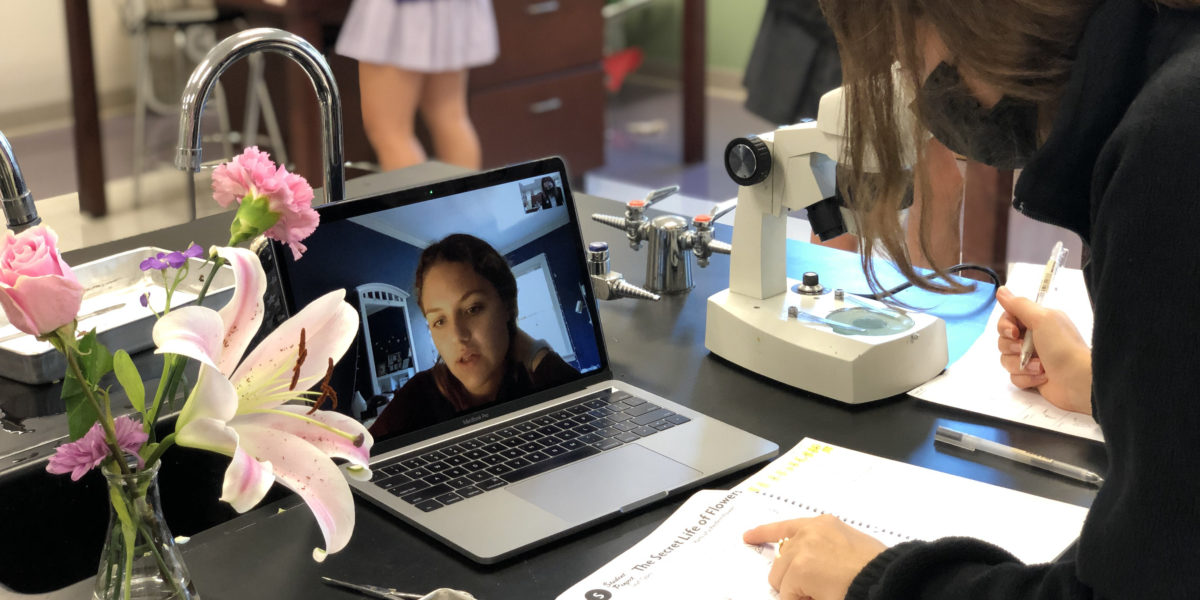
In lab-based Honors Biology II, students undertake their own investigations to gain hands-on scientific experience, and Upper School faculty member Allison Bowden finds creative ways to empower her distance learners to fully engage with the class.
“I have changed my homework assignments to involve more field work at home, including backyard observations, photos, and collecting of plants,” she noted. “All students can share their findings, whether through the projection of my computer screen or with a show-and-tell in the classroom. I have also developed lessons and activities that can be conducted at home or participated in via online attendance.”
Those adaptations have proven invaluable to her distance learners. “Mrs. Bowden includes distance learners in discussions and activities the other girls are doing in person, makes sure we can ask questions while going over notes and homework, and lets us participate in labs and fun experiences,” said Ava Piebenga ’21. “When our class was working with air plants, she sent home two for me to plant as well.”
In particular, Bowden wants her distance learners to experience the lab experiments that are an integral part of Honors Biology II. When students began researching the inner workings of flowers, she saw the perfect opportunity to model scientific collaboration. “While conducting the lab, my on-campus students embraced the opportunity to teach their distance-learning partners,” said Bowden. “They carefully followed procedures as they worked to identify the structures together.”
Using compound light microscopes and dissecting scopes, students also practiced photomicroscopy to capture intricate photographs of flower anatomy. “Being able to call in and work directly with an in-person partner increased my understanding of the lesson content significantly,” affirmed Mallory Mease ’21. “As a virtual student, I was able to take pictures under the microscope which allowed me to look more closely at the parts of the flowers I had only seen on diagrams up until that point.”
According to Bowden, those partnerships are an indispensable component of her students’ educational experience. “I think the on-campus students learned more from the lab by seeing it through their distance partners’ eyes,” she said.
